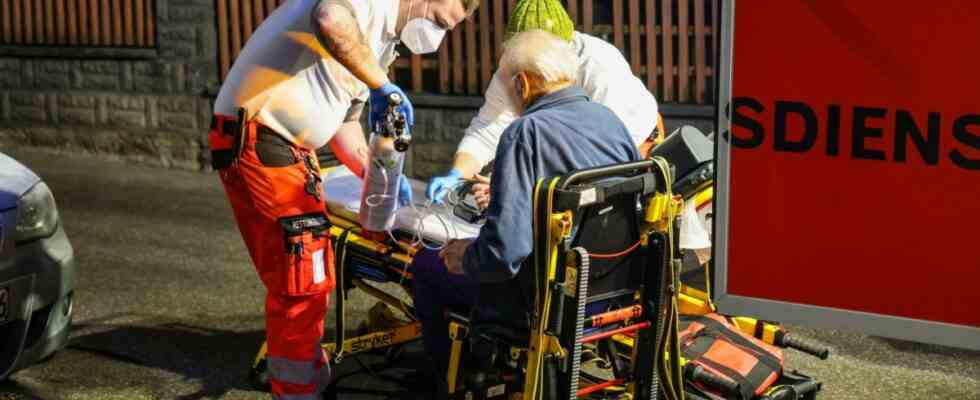Defense Minister Boris Pistorius (SPD) sees good arguments for general compulsory military service in Germany. A general compulsory service would mean that young people could not only serve in the Bundeswehr, but could also support civil protection or rescue services. “I expressly did not speak out in favor of the reactivation of conscription,” emphasized Pistorius. Rather, he considers the discussion about a general obligation to serve “valuable”. The new defense minister laments the distance many people have from national tasks. In order to form a political opinion on this issue, however, the voices of younger people must be heard, said the SPD politician to the German Press Agency in Berlin.
Compulsory military service was suspended in 2011 after 55 years under the then CSU Defense Minister Karl-Theodor zu Guttenberg, which in practice was tantamount to abolishing military and civilian service. The Russian attack on Ukraine had recently repeatedly triggered a debate on this issue. According to widespread understanding, the term general service obligation means that citizens perform a service for the general public for a certain period of time. The Bundeswehr could then be an option alongside other activities, for example in the social sector.
As a 62-year-old, he was reluctant “to burden a generation that already has a difficult future ahead of it with general service,” said Pistorius. “What would speak for it from my point of view? In the past few months, the impression has arisen that some do not have the necessary appreciation for the fire brigade and Red Cross, police and armed forces. The general obligation to serve could help bring people and state organizations a little closer bring together,” he said. “It could show how important these institutions are for the functioning of our society.”
At the end of January, Pistorius initiated a discussion about reintroducing conscription. In an interview with that newspaper, Pistorius had said: “It was a mistake to suspend conscription.” As a result, Federal Finance Minister Christian Lindner (FDP) called the debate a “ghost discussion”. His party colleague and chairwoman of the Defense Committee in the Bundestag Marie-Agnes Strack-Zimmermann, on the other hand, had not ruled out the reintroduction of conscription.
Pistorius expressed his conviction that defense readiness on the one hand and civil protection and disaster relief on the other hand had to be considered together. “Germany has not paid enough attention to civil protection and disaster relief for too long. For a long time there was a lack of money for disaster relief, for vehicles and equipment. Everyone hoped that it would never be needed,” he said. As with defense, the following applies: “The costs are high without the long-term benefits being immediately perceived.”
Pistorius: The Bundeswehr needs better equipment
Pistorius, who was previously Minister of the Interior in Lower Saxony, visited the Ukrainian city of Kiev last week and found out about the military situation and how to defend against Russian attacks on the country’s civilian infrastructure. “We have to ensure full defense capability on the one hand and support for an attacked country like Ukraine on the other. That’s the big challenge now. And don’t fool yourself, it can’t be settled overnight,” he said. “It is clear that the Bundeswehr must be better equipped. This means not only the realization that the special fund will not be sufficient, but also that the defense budget must be increased. Because the running costs also increase with the turn of the century, with every weapon system, that is purchased through the cost of maintenance.”
But Pistorius is not in favor of working with terms such as the concept of a war economy to ramp up your own armaments industry. “It’s not about a war economy, that is, not about an economy that is prepared or geared by the state to fight a war. Rather, it’s about defense capability,” he said. “The industry has an interest in getting reliability and planning security – both in terms of acceptance by the Bundeswehr and the possibility of exporting. It is also clear that we have an interest in being given priority when we order something “We need planning security. I’m currently working with all my might to accelerate procurement in close cooperation with the defense industry.”

